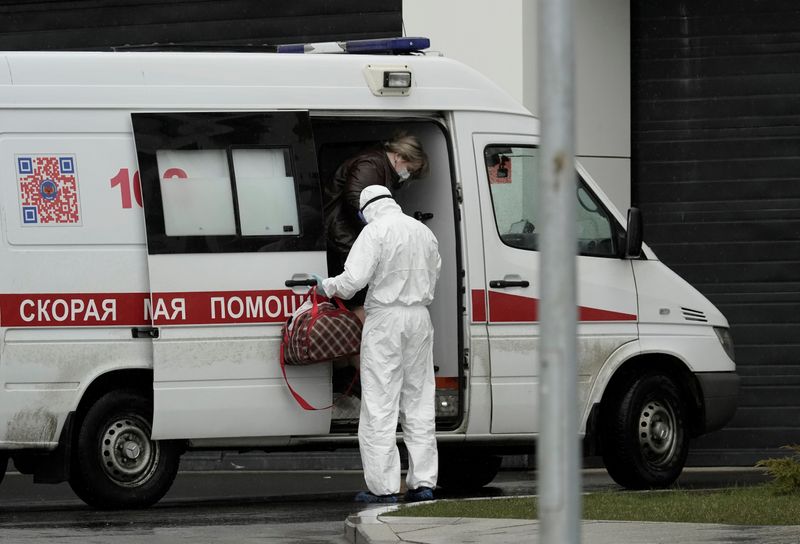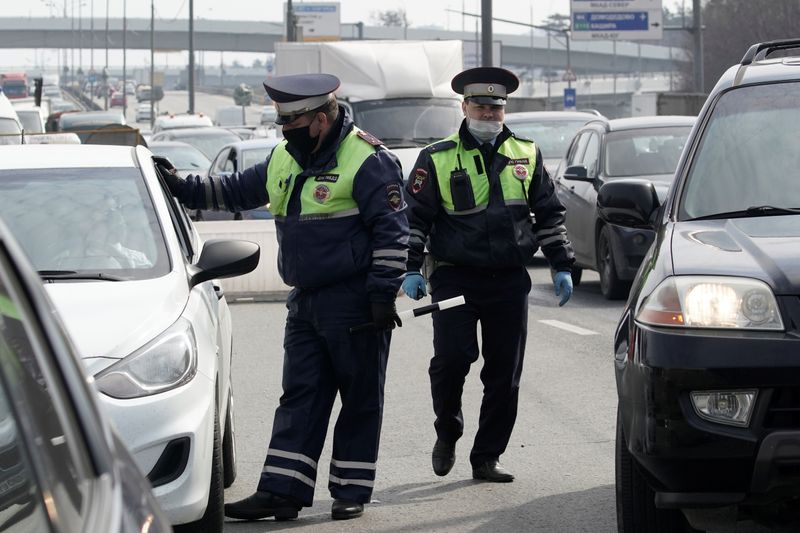By Polina Ivanova and Tom Balmforth
MOSCOW (Reuters) - Authorities in Moscow have warned that the Russian capital may run out of hospital beds to treat a rising influx of coronavirus patients in the next two to three weeks despite frantic efforts to get more beds in place.
Moscow, Russia's worst-hit region, has rushed to reconfigure hospitals to treat patients of the new virus and made thousands of new beds available.
But officials said those efforts looked insufficient and that they had to ramp up capacity further.
"...The operational headquarters predicts that despite the inclusion of an increasing number of state, federal and commercial clinics, a shortage of beds in redeveloped hospitals is possible in the next two to three weeks," the Moscow city health department said.
It would reconfigure 24 more hospitals given the precarious situation and planned to have a total of 21,000 beds available within the next 10 days, it said in the same statement, which was issued late on Monday.
New confirmed infections in the Russian capital shot up by 1,489 overnight, a record, bringing its total number of registered cases to 13,002.
The tally of nationwide cases, including Moscow, stands at 21,102. Authorities say 170 people have died so far.
Sergei Savostyanov, a Moscow lawmaker who sits on the local parliament's healthcare commission, told Reuters last week that hospital capacity would be close to breaking point if new cases rose by more than 1,500 in the capital every day.
"Judging by documents on the healthcare budget I am familiar with and sittings I attend, I think that if 1,500-2,000 people get infected (on a daily basis), we will reach a very serious threshold, which may be critical for the city," he said.
'CLOSE TO CATASTROPHIC'
Moscow Deputy Mayor Anastasia Rakova said on Friday that the number of seriously sick patients requiring hospitalisation was rising quickly, creating what she said was a "dramatic" burden on the city's healthcare system.
On Saturday, one coronavirus patient, Georgiy Federov, described the situation in the hospital where he was taken as "close to catastrophic".
"The admissions room was packed with sick people, and most had identical symptoms... Ambulances were arriving every five to seven minutes," he wrote on social media, adding that he had refused to be held in hospital.
"Medical staff and doctors are really working as if it was wartime. It's some sort of crazy conveyer belt of sick people... Everyone is placed in wards together. Clearly, bed spaces are already filled to the brim."

Sergei Sobyanin, Moscow's mayor, said on Monday that the city had enlisted around 4,500 university and college medical students to help hospital staff treat the inflow of patients.
